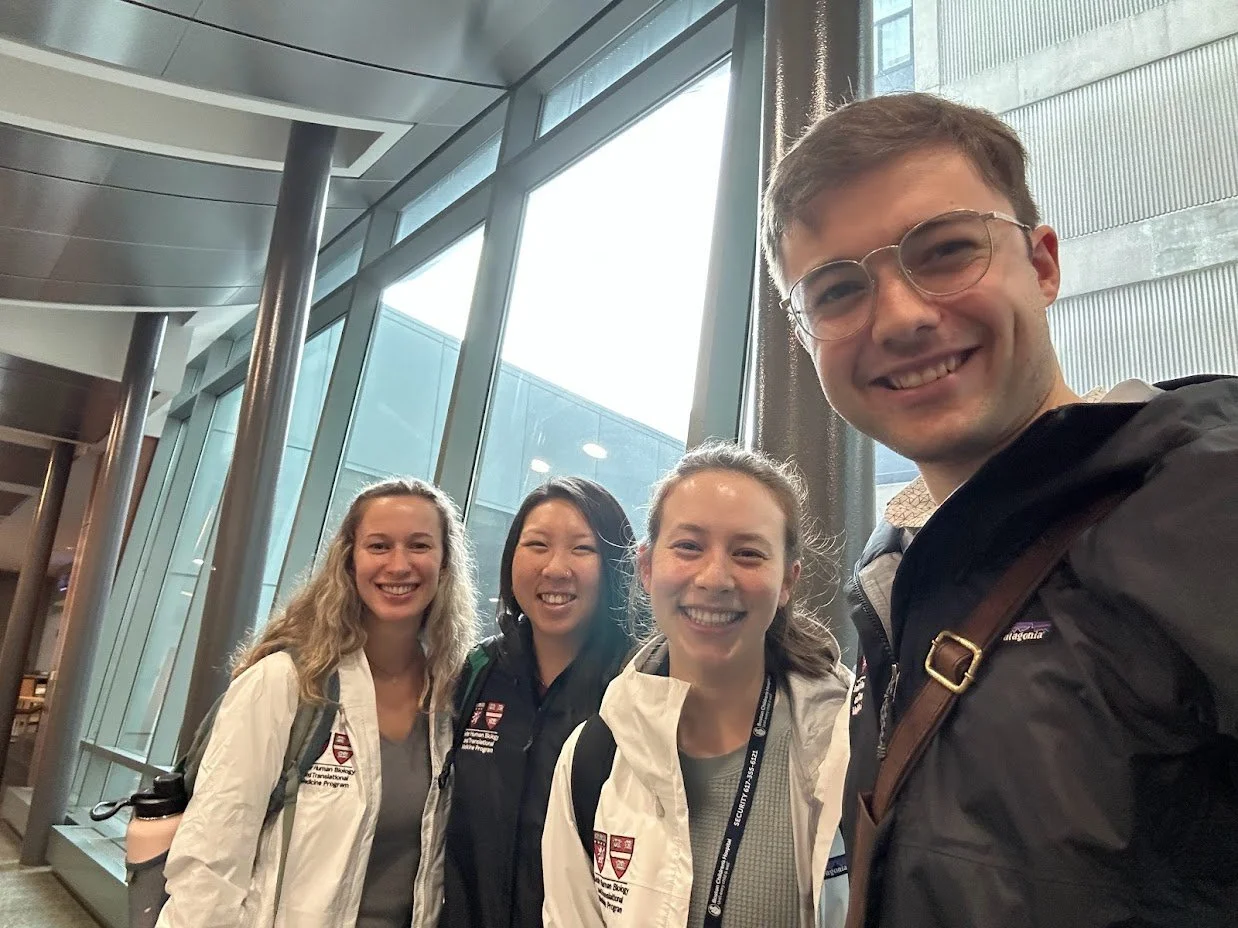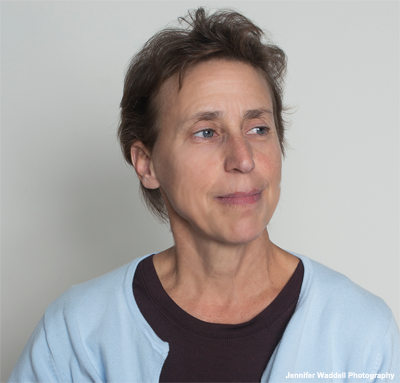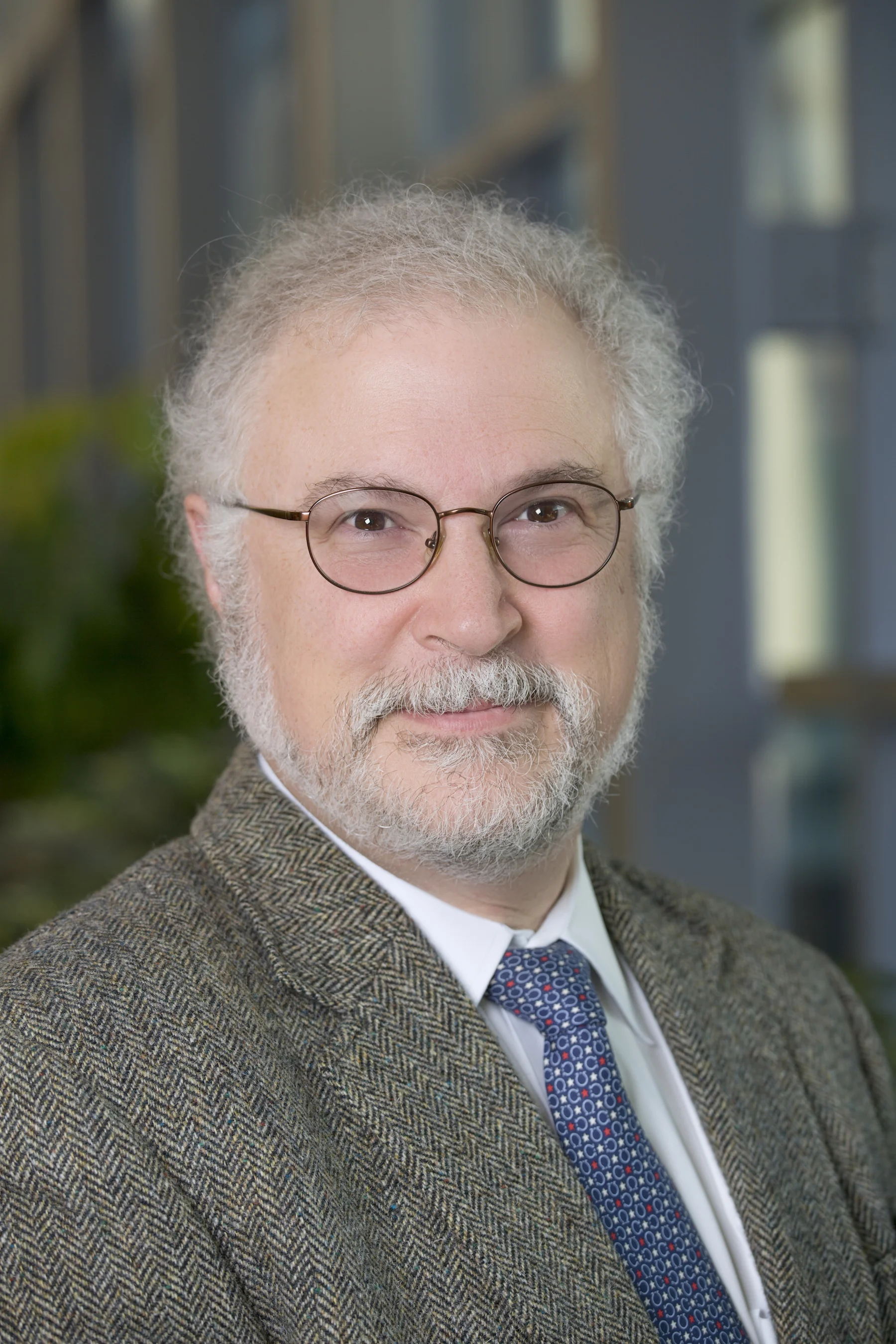Apply
Leder Students sporting their Leder Patagonia Rain Jackets!
Application Process
All G1 students interested in applying at this time will be asked to provide an essay describing their motivation to work in an area related to human disease. Students must be in good standing in their graduate program, as ascertained by the Admissions Committee through direct communication with each HILS Program Head. Each applicant will be interviewed by members of the Admissions Committee, including at least one of the Program Directors. Formal admission to LHB occurs during November of Year 1 in graduate school (i.e. the G1 year).
Information Session
There will be an information session on October 10 for all G1 students interested in the Leder Human Biology and Translational Medicine Program. It will start at noon, in person, in the NRB (77 Avenue Louis Pasteur) on the Longwood campus (room to be announced). Lunch will be provided. An outline of the program will be presented, and current students and a Program Director will be present to answer questions and provide discussion. The program is open to all HILS G1 students.
A Recording of the 2022 LHB Information Session is available here.
Application Instructions
The application is due November 4. You can open the application with instructions using the green button on the left.
Interviews will be held November 11-22, admissions decisions will be made by early December, with a Welcome Dinner on December 5. The first class is the Case Studies in Translational Medicine Class, January 13-24, 9-10:30 AM, with no class on MLK day. Note that this is a required class.
Questions? Contact Us At:
Dr. Thomas Michel (Co-Director) - thomas_michel@hms.harvard.edu
Dr. Connie Cepko (Co-Director) - constance_cepko@hms.harvard.edu
Kim Burman (Cepko Lab Administrative Assistant) - kimberly_burman@hms.harvard.edu
Kiwi Florido (Leader of LHBTM Student Steering Committee) - kiwiflorido@g.harvard.edu
Frequently Asked Questions
1. Who can apply?
LHBTM is open to all first year Harvard students who are members of a Harvard Integrated Life Sciences (HILS) graduate program.
2. What does the application involve?
The application includes an essay describing why you want to be in the program and an interview with two members of the LHB Admissions Committee.
3. What are the criteria for admission into LHBTM?
The primary criteria for admission are a demonstration of a true interest in the material as evidenced by your essay and interview. It is also important that you are in good standing in your HILS graduate program, which will be ascertained by consultation with your HILS Program Head.
4. Is there a limit to the number of students accepted each year?
The number of students admitted will be capped at 20 and is limited by how many students can be accommodated in the courses. To date, we have not had to deny admissions based upon the number of slots.
5. Will I be able to do my research rotations when I am doing LHB courses?
We anticipate that students who are part of LHB will be able to do research rotations as usual for graduate students in your PhD Program.
6. Will my LHBTM courses count toward my program requirements?
It is expected that the courses will count toward your program requirements but each student will be encouraged to confirm this with their program advisor.
7. Can I take a LHBTM course if I am not a part of the program?
The three LHB required courses, BCMP 234, HBTM 200, and HBTM 235, are open to all Harvard graduate students on the basis of availability. The clinical experiences and HBTM301qc (HB233) are limited to LHB students.
8. Are there other requirements outside of classes?
The LHB Program is a community for students with similar interests. LHB students are drawn from multiple HILS programs, and both classes and extracurricular activities enable students to get to know each other. There are a number of different extracurricular activities, such as the “Grand Rounds”, where residents and physicians from the Brigham and Women’s Hospital go over a clinical case, an activity which is shared with the MD/PhD students. There are also dinners where we invite a speaker to share his or her career experiences in a translational research, or related, field. Students in the first two years are required to attend these extracurricular sessions. Students in the upper years are expected to attend approximately one third of these events. It is very beneficial to all to have students in the different years of graduate training get to know each other.
9. If after participating in LHBTM I decide I would like to attend medical school, can I transfer to Harvard Medical School?
There is no mechanism for transfer from the graduate school to the medical school. You would have to apply to any medical school much as any other student.
10. Can I request a particular kind of clinical experience if I take the MCCB?
Yes, and every effort will be made to pair a student with a clinician who works in the area of interest to the student.
11. If I have a thesis lab, do I have to ask my advisor for permission to join the program?
Formal permission is not required but you should have an honest discussion with your advisor about what the Program involves.
12. How long will the Program add to my PhD?
The Program extends over a 1.5 year time period but it is interspersed with and fulfills many of your HILS program requirements. Our statistics so far show that LHB students graduate, on average, approximately at the same time as non-LHB students. Overall, we do not expect the program to accelerate or delay your graduation relative to that of your peers who are not in LHB.
Questions? Concerns?
Contact Connie Cepko or Thomas Michel for more information.
Connie Cepko, PhD
Department of Genetics and Howard Hughes Medical Institute
Co-Director, Leder Human Biology and Translational Medicine
Harvard Medical School
77 Avenue Louis Pasteur
NRB Room 360
constance_cepko@hms.harvard.edu
Administrative Assistant: Kim Burman
kimberly_burman@hms.harvard.edu
Thomas Michel, MD/PhD
Professor of Medicine and Biochemistry, Harvard Medical School
Senior Physician in Cardiovascular Medicine, Brigham and Women's Hospital
Co-Director, Leder Human Biology and Translational Medicine
Thorn Building 1210A, 75 Francis Street
thomas_michel@harvard.edu


